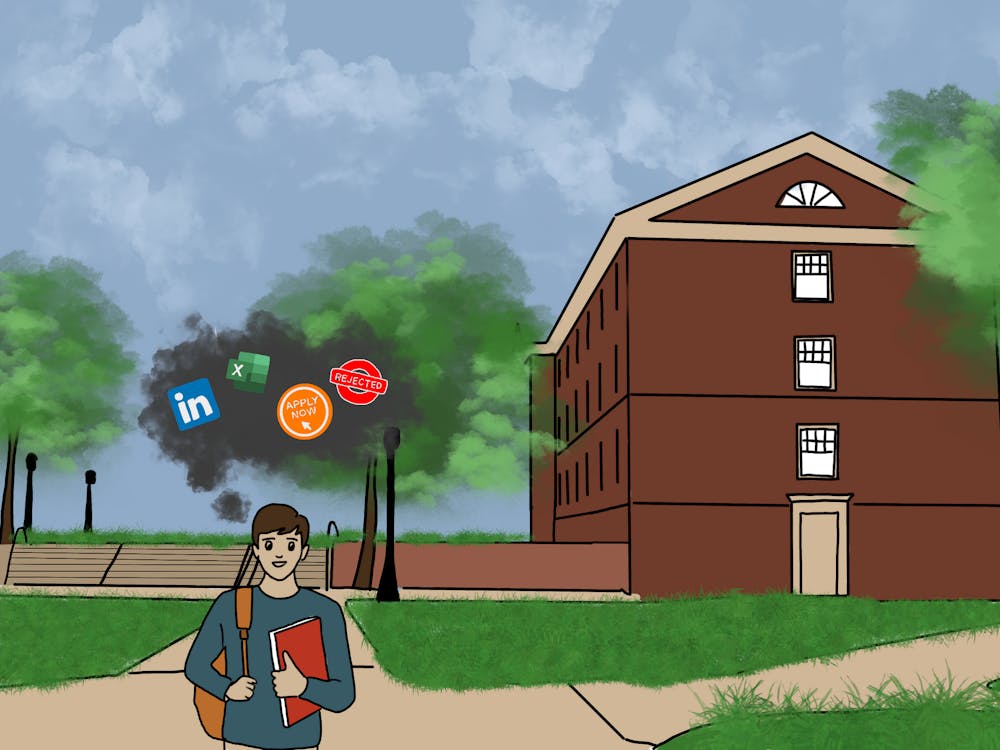It’s that joyous time of year again when students forget to eat and spend so much time stressing over studying they forget to actually study. Finals season is upon us, and this year it will look different for many of us who are taking our exams online. Below I have included several helpful tips and tricks to minimize time spent studying while maximizing your score and free time to enjoy your last week of college.
The first step to any successful online exam is figuring out exactly what you are allowed to use as a resource on the exam. No one wants to be expelled or suspended from the University for cheating on a 1000 or 2000 level class. The most effective way to avoid this possibility is to attend your professor’s office hours and instead of asking questions about the material or any of that stupid stuff, you want to go full FBI on them and figure out down to a T what is allowed to be used. Some might argue this will rub your professor the wrong way, but honestly who cares — in the end, all we need is a C to get our degree and be on our ways.
Once you have acquired a specific list of all possible resources, you need to begin determining which are valuable and which are not. So let’s start with the most obvious one — your own notes. Now this one is more or less irrelevant because you and I both know you weren’t taking any notes as you laid cuddled up in bed at 10 a.m. while the professor yapped on Zoom. Next up in its probability of being allowed to use as a resource would be your textbook. Now you may be thinking a textbook isn’t that useful, or it’s too hard to find information in, but you are wrong. First step in the process is to dog ear, or bookmark if it is an online textbook, the glossary so when you have no idea what a Nash Equilibrium is you can quickly figure it out. After this, the only other real benefit comes if you have an online textbook with good ‘ole command + F. Command + F will allow you to find any word or key phrase in the book and read the short little paragraph to figure out whatever the answer is and be onto the next question in no time at all.
Alright now, moving on to some of the more unlikely but possible resources your teacher may approve. First up — using past tests or quizzes. While this may not seem like it is that beneficial, it is. Professors have become just as lazy as students during the pandemic so there is no chance they are coming up with a completely new exam with all new questions. Therefore, all you need to do is have those babies downloaded and command + F through them in 15 seconds to find where they asked the same question on the first midterm and boom — your 20 percent is now a 50 percent. Our final possible resource your professor may let you use is the internet because well, f—k it. They are just going to make their test that hard and they wanted the sadistic satisfaction of knowing they beat you and the internet at the same time. In almost every case in which you are given the internet Chegg and anything similar will be outlawed and most likely baited with traps of fake exam questions set by your professor, so just don’t use it. Beyond that, it is unlikely the internet will be of much use to you because if it was going to be useful, your professor wouldn’t let you use it.
The final scenario to discuss is if your professor makes it a closed note test with no outside resources. If this is your situation, accept my sincerest condolences because there is no hope for you and I recommend accepting your inevitable failure now, so you can move on and enjoy your final week of the semester.







